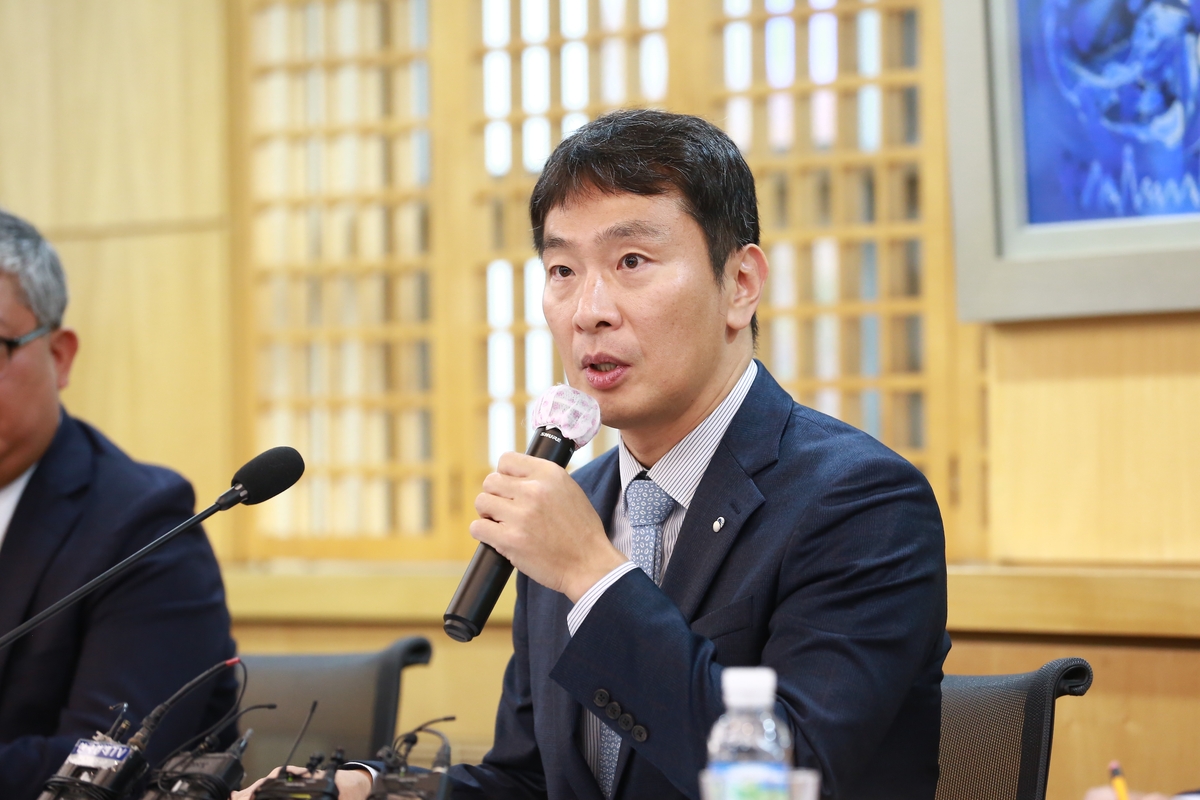- California Assembly OKs highest minimum wage in nation
- S. Korea unveils first graphic cigarette warnings
- US joins with South Korea, Japan in bid to deter North Korea
- LPGA golfer Chun In-gee finally back in action
- S. Korea won’t be top seed in final World Cup qualification round
- US men’s soccer misses 2nd straight Olympics
- US back on track in qualifying with 4-0 win over Guatemala
- High-intensity workout injuries spawn cottage industry
- CDC expands range of Zika mosquitoes into parts of Northeast
- Who knew? ‘The Walking Dead’ is helping families connect
Top regulator defends stock short selling ban, blasts banks for excessive interest income
The head of South Korea’s financial regulator on Monday defended a ban on stock short selling, saying the measure is aimed at restoring a level playing field for retail investors.
Lee Bok-hyun, head of the Financial Supervisory Service (FSS), made the remark a day after financial authorities voted to temporarily suspend short selling through June 2024. The move went into effect earlier in the day.
“It was an inevitable choice to introduce an advanced short selling system,” the FSS chief said while speaking with reporters.
“It is not a road where there is lots of broken glass, but one where all glass is completely shattered,” he said of the domestic stock market, noting the FSS has confirmed that some 100 listed stocks have been subject to illegal short selling.

The decision to suspend short selling was reportedly prompted by the recent exposure of two Hong Kong-based investment banks (IBs) that are suspected of short selling some 56 billion won (US$43 million) while being fully aware that they would not be able to borrow the shares sold.
The FSS has said it will check all global IBs in the country to see if they are engaged in such illegal practices known as naked short selling.
The financial regulator earlier said the country will work to come up with a new, revised system that will prevent illegal short selling before the end of June 2024.
Lee also criticized banks for making what he described as “undeservedly large” income on high interest rates.
The FSS chief explained the combined operating profits of banks in the third quarter were bigger than those of Samsung Electronics, LG Electronics and Hyundai Motor combined, also adding that the banks’ interest income is expected to reach 60 trillion won this year, “the largest in history.”
“The semiconductor and automobile companies maintain their competitiveness in the global market through innovation. The operating profits of such companies remain at that level. Those in the banking industry, too, should decide if the banks were able to make 60 trillion won in interest income through such various innovation efforts as those of semiconductor and automobile firms,” Lee added.








![일본 사도광산 [서경덕 교수 제공. 재판매 및 DB 금지]](http://www.koreatimesus.com/wp-content/uploads/2024/07/PYH2024072610800050400_P4-copy-120x134.jpg)


